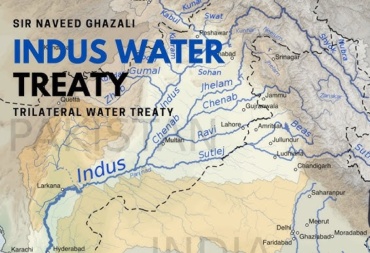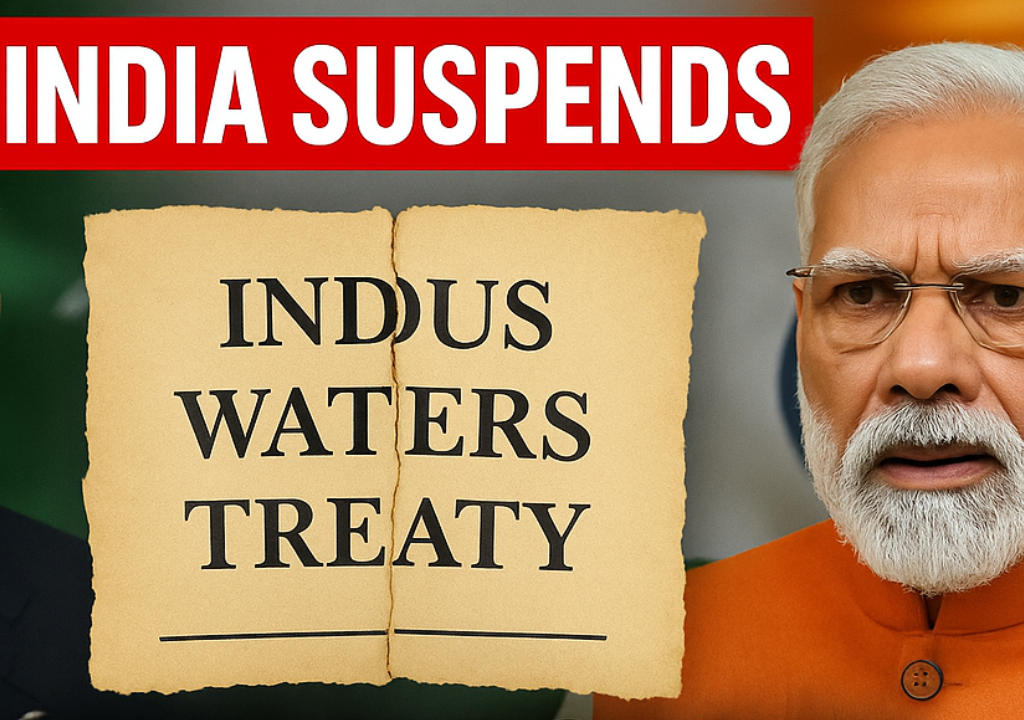Introduction
In a historic and unprecedented move, India has suspended the Indus Waters Treaty of 1960 and ordered the closure of the Attari-Wagah border, following evidence of Pakistani involvement in the Pahalgam terror attack that killed 26 civilians, including one foreign national. The decision marks a significant escalation in bilateral tensions and a shift in India’s traditionally restrained diplomatic posture.
CCS Decides: Indus Waters Treaty Suspended
India’s Cabinet Committee on Security (CCS), chaired by Prime Minister Narendra Modi, reviewed the findings of the cross-border linkages involved in the Jammu and Kashmir attack. In the high-level meeting, Foreign Secretary Vikram Misri confirmed that the perpetrators had support from across the border.
Key Measure:
“The Indus Waters Treaty will be held in abeyance until Pakistan credibly and irreversibly ceases its sponsorship of cross-border terrorism,” Misri said.
This is the first time the treaty, brokered by the World Bank and signed in 1960, has been suspended—even after three wars between the two nations.
Closure of Attari Border Check Post
India has also ordered the immediate shutdown of the Integrated Check Post at the Attari-Wagah border. Travelers with valid permits have been given until May 1, 2025, to return through the checkpoint.
This move effectively ends people-to-people land transit between India and Pakistan, closing one of the few remaining functional ties between the two nuclear-armed neighbors.

Visa Exemptions Revoked for Pakistani Nationals
India has scrapped the SAARC Visa Exemption Scheme (SVES) for all Pakistani citizens:
- All SVES visas issued to Pakistanis are now cancelled.
- Pakistani nationals currently in India under SVES have 48 hours to exit the country.
- Future applications under this scheme will be denied until further notice.
This crackdown impacts diplomats, business delegates, journalists, and athletes—essentially freezing high-level soft engagement.
Diplomatic Expulsions and Personnel Cuts
India declared all Pakistani military advisers—including naval, air, and defence attachés in New Delhi—as persona non grata. These officials have seven days to leave the country. India will similarly withdraw its military liaisons from its High Commission in Islamabad.
Additionally, India announced a staff reduction in both High Commissions, trimming their personnel count from 55 to 30 each by May 1, 2025.
This is one of the most sweeping diplomatic disengagements between the two countries in decades.
Links Suggested: India-China Trade War: Can India Adopt Trump’s Economic Playbook?
Why This Move Matters: Strategic and Symbolic Impact
The suspension of the Indus Waters Treaty—a rare example of enduring bilateral cooperation—is not only strategic but deeply symbolic. It reflects India’s growing impatience with Pakistan’s use of terrorism as state policy, particularly as economic and diplomatic ties with Western powers deepen.

The Treaty’s History and Implications
The Indus Waters Treaty, signed on September 19, 1960, allocates river rights between the two nations:
- India: Ravi, Beas, Sutlej
- Pakistan: Indus, Jhelum, Chenab
Despite tensions, the treaty remained intact through wars in 1965, 1971, and 1999. The Modi government’s decision to suspend it sets a precedent that peace cannot coexist with terror.
Links Suggested: Digital India and Cyber Security: Balancing Innovation and Protection
Pakistan’s Water Crisis and Future Fallout
The decision poses a serious threat to Pakistan’s water security. Already categorized as water-stressed, Pakistan’s rivers—especially the Indus—are vital for agriculture, drinking water, and energy.
Experts warn that climate change, rising demand, and poor resource management have pushed Pakistan close to a severe water crisis. The suspension of the treaty will worsen these issues and may trigger international pressure on Islamabad to reform its anti-terror commitments.
Conclusion
India’s suspension of the Indus Waters Treaty and the closure of the Attari-Wagah border are decisive and symbolic responses to the Pahalgam terror attack. The measures reflect a hardened diplomatic stance rooted in both national security and long-term strategic signaling.
With these bold moves, India is asserting that dialogue and diplomacy are no longer viable in the face of repeated acts of terror. It is a strong message—not just to Pakistan—but to the global community: terrorism will not be tolerated, and accountability will come with tangible consequences.

